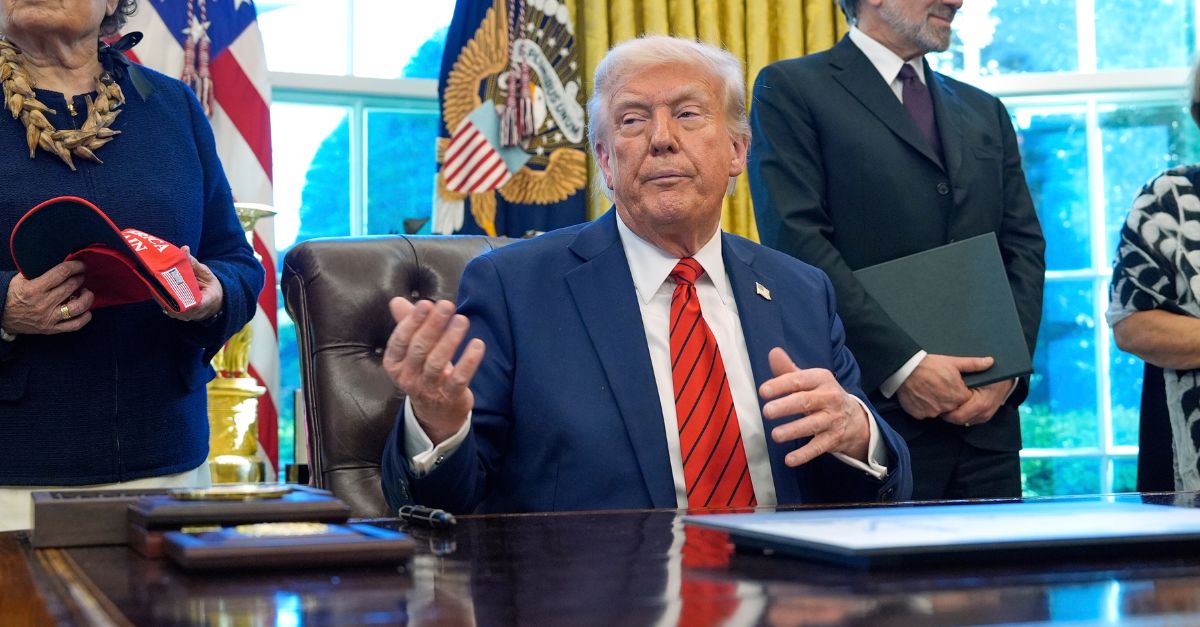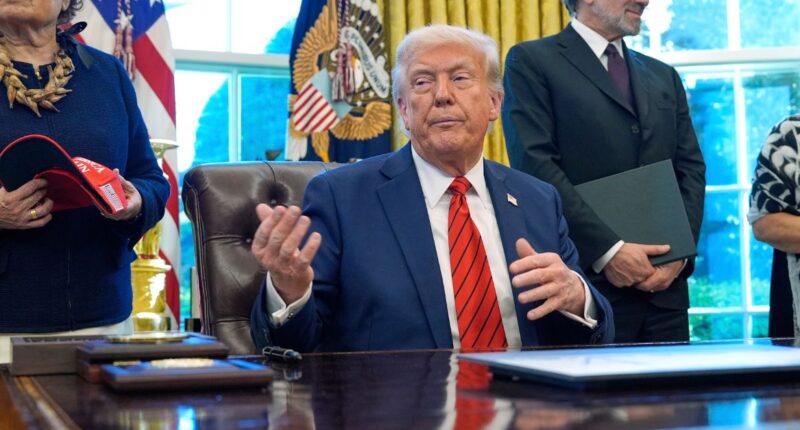
President Donald Trump is seen here gesturing for the press to leave after signing executive orders. This photo was taken on April 17, 2025, at the White House in Washington.
Lawyers representing Venezuelan men detained in Texas have requested intervention from the U.S. Supreme Court regarding the Trump administration’s unique use of an 18th-century wartime law to speed up deportations of alleged gang members. They argue that the government is not complying with the court’s directive to inform detainees before transferring them to a notorious labor camp in El Salvador.
In a rare move, the high court issued an order on a Saturday morning, instructing the government to refrain from deporting any immigrant detainees affected by President Donald Trump’s declaration invoking the Alien Enemies Act of 1798. Earlier, on April 7, the justices unanimously ruled that detainees under the AEA should be notified about their potential removal and be given the opportunity to seek legal recourse before any such action is taken.
In Monday’s 15-page filing, the ACLU, which represents the detainees, asserted that the administration was not abiding by the court’s order. Instead, they allege the government has been shuffling groups of migrants between different judicial districts and providing them with “English-only AEA notices” less than a day before they are deported without “any explanation” as to how they may seek judicial review.
Such actions by the government “cannot by any stretch be said to comply with this Court’s order,” the filing states. And rather than defend its current procedures, the administration responded to the justices’ order by arguing that the petitioners “jumped the gun” by filing with the Supreme Court before exhausting their options at the lower courts.
But according to the plaintiffs, that claim “cannot be squared with the facts on the ground.”
“Applicants filed an emergency renewed [temporary restraining order] motion about thirty minutes after midnight on April 18 informing the district court that individuals were being told they would be removed later that same day, Friday, April 18,” the filing states. “The information was not a false alarm. As it turned out, individuals were loaded onto buses that left the Texas facility around 5:35 p.m. CDT, only later to be turned around, presumably because of Applicants’ filing in this Court.”
Justice Samuel Alito penned a dissent to the Saturday order that was joined by Justice Clarence Thomas, in which they criticized the majority for intervening “literally in the middle of the night,” saying it was too soon. Before the high court stepped in, a DOJ attorney on Friday told a federal judge in Washington, D.C., that the administration was not planning on removing any migrants from the U.S., however, the government also reserved the right to start deportation flights Saturday morning.
In order to prevent similar situations from occurring “again and again,” the ACLU asked the justices to go a step beyond what any of the lower courts have had the opportunity to address — whether Trump’s usage of the AEA is constitutional.
“[B]ecause there is a substantial likelihood that the Court would grant certiorari to review the weighty question whether the AEA can be invoked outside of wartime against a criminal organization and for only the fourth time in U.S. history, Applicants respectfully request that this Court retain jurisdiction, maintain the injunction, and also consider treating this application as a petition for certiorari before judgment,” the ACLU wrote. “Applicants recognize that this is an extraordinary request given that the district court has not yet ruled on the merits, but believe it is appropriate in light of the government’s actions on April 18, its position that there is no remedy for wrongfully removed individuals, and the fact that the government is moving Venezuelans whom they have labeled as gang members all around the country, making it likely that habeas actions will be required in multiple districts.”
Love true crime? Sign up for our newsletter, The Law&Crime Docket, to get the latest real-life crime stories delivered right to your inbox.











